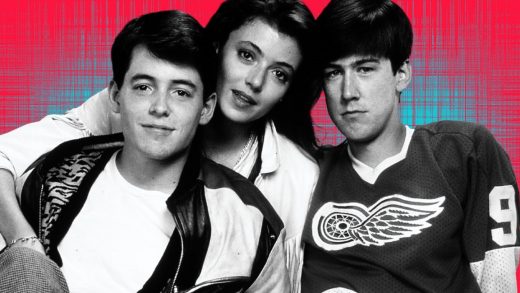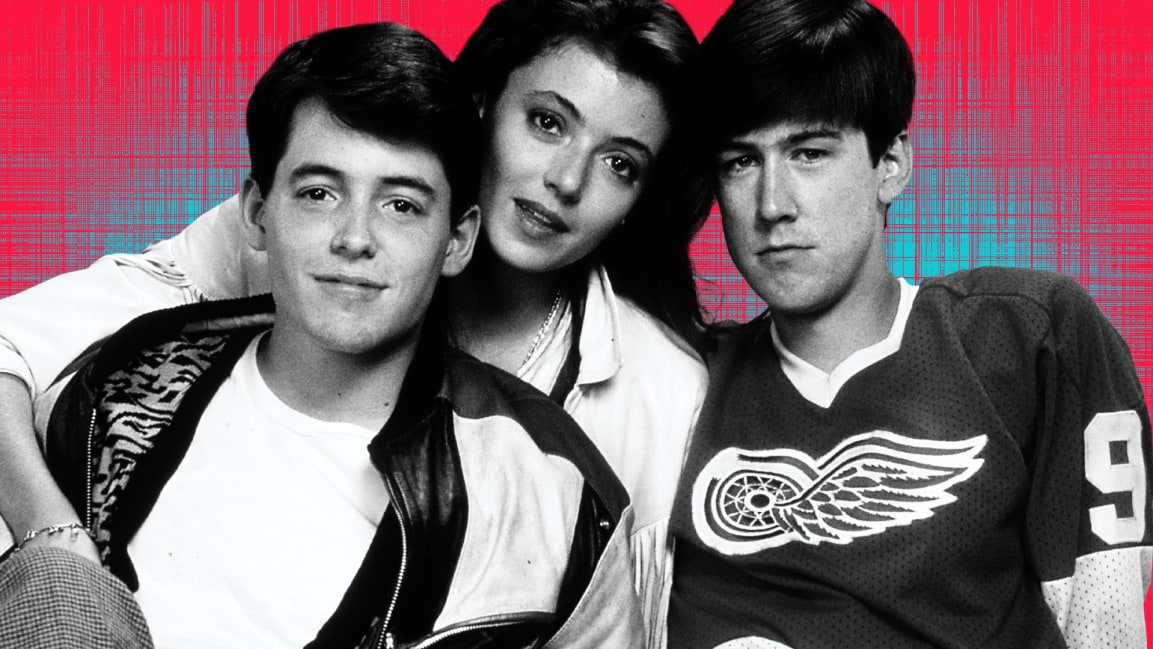You need to watch ‘Ferris Bueller’s Day Off’ because it indulges all your quarantine fantasies
The point of a pointillist painting is that the closer you look, the less you see.
As sad sack Cameron Frye (Alan Ruck) gazes ever deeper into a Georges Seurat painting in the middle of Ferris Bueller’s Day Off, for instance, the familial image at its center collapses into a confetti of meaningless dots.
In this regard, Ferris Bueller is pretty much the opposite of a pointillist painting. The wildly enduring John Hughes hit has been enchanting audiences for 34 years, inviting them to look closer and find more within it. How else to explain the popular Fight Club theory that cropped up a few years back, positing Ferris Bueller (Matthew Broderick) as just a figment of Cameron’s imagination?
Considering that Ferris Bueller is a classic comfort-food movie, it easily made Fast Company’s recent list of ideal quarantine streams. When I revisited the film during a particularly bad quarantine day last week, though, I saw way more than just comfort food.
Whatever writer-director John Hughes intended with it—and he lays out a lot of his thoughts in this commentary track—Ferris Bueller’s Day Off is now pure quarantine fantasia, bringing all our most immediate dreams to the surface.
Stir-crazy days in
“When you’re home with the flu, sick, you amuse yourself in ways you wouldn’t normally,” John Hughes says on his commentary track.
It’s an explanation for the brief scene early on in which our hero dances around his bedroom, in his third costume change of the young day, the “I Dream of Jeannie” theme song blaring at full blast. Hughes might as well be talking about the first 15 minutes altogether.
Before Ferris starts executing his plan, all we see is what many of us experienced in the early weeks of quarantine: wacky indoor shenanigans to stay amused, and constant telecommunication with the outside world. In addition to sunbathing in the backyard, playing the clarinet (badly), and composing a Modigliani re-creation on MacPaint, Ferris spends time on the phone with random high schoolers—spreading rumors about himself, sure—but seemingly grateful for the neat trick of being about to connect with people he ordinarily might bump into, even though he isn’t there. All this when he’s not trying to convince Cameron, who is cocooned in blankets and surrounded by medicine bottles, “You’re not actually sick, you just can’t think of anything good to do.”
From your mouth to God’s ears, Ferris!
The lie of “No, really, I’m fine”
During a pandemic that has so far robbed a record 40 million people of their jobs, not everyone still employed can afford to take days off for emotional distress. On any given weekday between March and now, untold millions of working Americans are just gritting their teeth and faking okayness to get through as many Zoom meetings as it takes until it’s officially wine-and-X-Files-reruns o’clock. (A recent quarantine episode of Mythic Quest deftly wades through the difficulty of letting coworkers know how you’re really doing during the pandemic.)
Ferris Bueller thrives on the opposite kind of deception. He’s constantly pulling elaborate ruses in the more traditional vein of pretending to be sick, whether it be a mannequin in the bed, a jerry-rigged doorbell-voicemail, or punking the principal over the phone. In this inverted window to our current reality, when the nurse comes to tell you that your grandmother passed away, it’s all just part of the scam.
The impossible day
Having earned his day off, Ferris Bueller partakes in the ultimate fantasy day for anyone deeply missing the outside world. He pulls off the dream scenario of the first vaccinated day in a huge metropolitan city, with soaring shots from cinematographer Tak Fujimoto capturing peak 1980s Chicago.
Accompanied by his girlfriend Sloane (Mia Sara) and his best friend Cameron, Ferris crams an impossible number of germ-filled activities into one not-at-all socially distant eight-hour stretch. They go to the Sears Tower, a Cubs game, the Art Institute of Chicago, a French restaurant with huge floral arrangements, and the stock market (actually, they can keep that part). They are so unworried about contracting a disease that they apparently break into a random backyard to use the jacuzzi, according to Hughes’s commentary track, solving the mystery of whose pool Cameron briefly ends up at the bottom of.
The day culminates in Ferris jumping on the main float at the German Day parade and leading the crowd through the Beatles’ “Twist and Shout.” Whatever you may remember about this scene, rewatching it in the context of a viral disease scaring everyone into isolation makes it feel downright defiant. This isn’t how a parade in the middle of a Chicago workday goes down; this is the main stage at Coachella. Everybody is clustered gloriously close together, having the best time as a community, and after the big buildup near the end of the song, they’re going f***ing nuts.
It’s a kind of irresistible crowd joy that can’t be faked. As Hughes mentions on the commentary track, all the people singing along at the end of the scene are real extras genuinely feeling the moment. Hopefully, we’ll all be able to feel a moment like that again soon.
The invincible man
It’s not just that Ferris Bueller manages to cram more physical activities into one day than humanly possible, read Cameron’s mind, or talk directly to camera; it’s that he is seemingly invincible. Around every corner lurks danger for Ferris, danger that somehow rolls clean off the Teflon sheen of his utter magnificence. Ferris should take the L when the snooty maître d’ refuses to buy his light case of identity theft. His dad (Lyman Ward) should notice him during the multiple times that their paths cross throughout the day. Principal Rooney (Jeffrey Jones) should absolutely have him dead to rights when he catches him sneaking back into the Bueller home.
Instead of any of that happening, though, Ferris gets away scot-free, while his nemesis gets trapped inside of Ferris’s house, getting attacked by Ferris’s dog and his sister, his car towed and ticketed.
True superhero stuff. King shit.
“He can do anything,” Cameron seethes to Sloane about his friend with the otherworldly luck. Cameron is clearly jealous, as we all should be at a time when the very act of walking through a grocery store without a mask requires the illusion of an invincibility only a fictional character could possess.
“Ferris Bueller, you’re my hero”
The last thing Ferris does with his day is help his best friend reach the catharsis he so desperately needs, in a way very few people can successfully offer right now. Not by helping Cameron trash his father’s 1961 Ferrari GT California, but by showing him the objectively good time that leads him there. (“It’s the best day of my life,” Cam admits.)
As The Atlantic recently pointed out, the pandemic has hit people everywhere in different ways. Some of your friends in another state, or even just another part of town, experience it differently than you do. When those friends are suffering, it hurts to be able to understand exactly what they’re going through, let alone do anything to help them. You can Zoom your struggling friend every day to bring some cheer into their life—and still not shepherd them to the promiseland of safety and stability.
But maybe Ferris could do that. It certainly seems to be in his wheelhouse. Ferris can unite a sprawling city to rally around a sick youth. He can indirectly lead his sister to take ownership over the root causes of her burning resentment. He can get you out of summer school.
Ferris Bueller is all things to all people in the world of the movie, and someone we all wish we had in the real world right now.
Thanks to John Hughes, at least we can sort of fake it.
(63)



